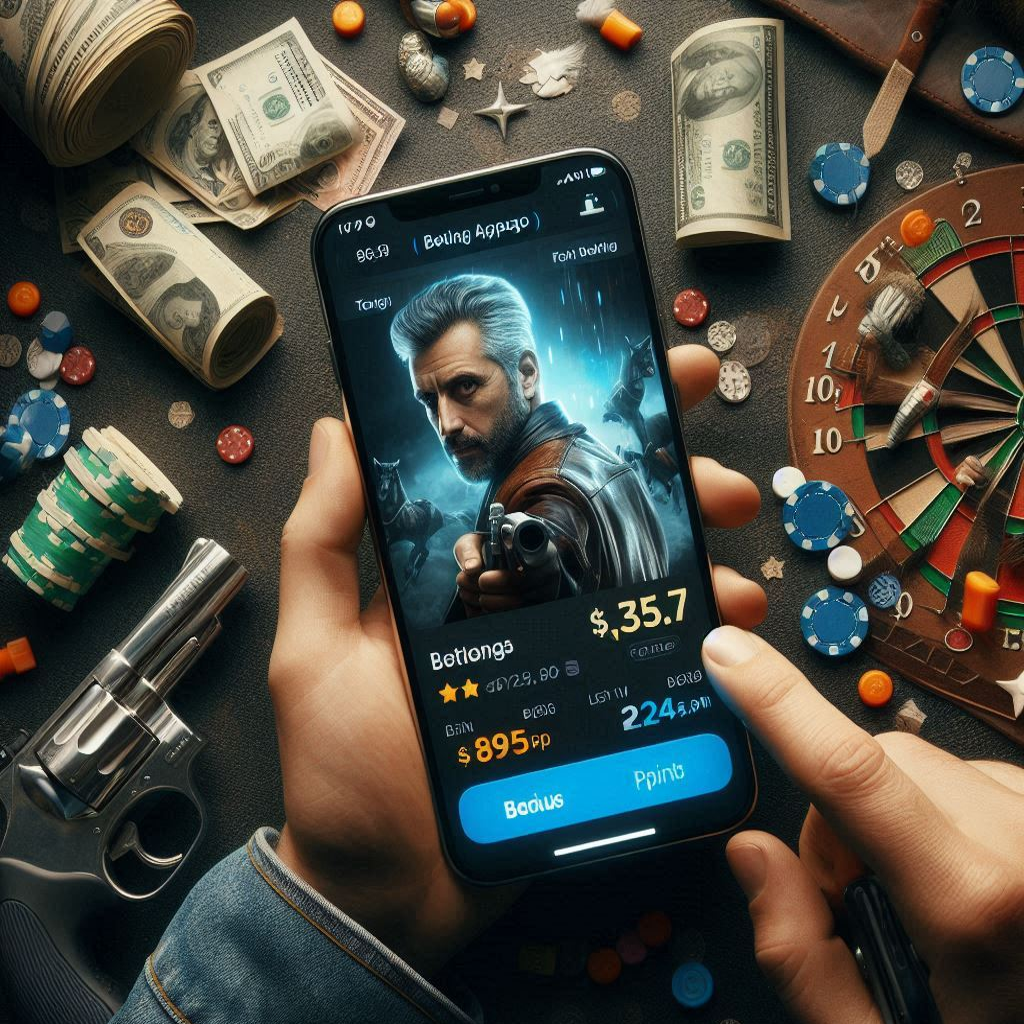Gambling can be fun and exciting, but it can also become a serious problem if we are not careful. Gambling addiction means that a person can’t stop thinking about gambling or can’t control how much they gamble. This can lead to bad choices and hurt the person and their family. Here are some tips and strategies to help avoid gambling addiction.
First, it’s important to set limits. This means deciding how much money and time you will spend on gambling before you start. Once you reach your limit, it’s time to stop. Another useful tip is to play games that don’t involve money. This way, you can still have fun without worrying about losing cash.
It’s also crucial to stay away from places where gambling takes place, like casinos or online gambling sites. This can help you avoid the temptation to gamble. If you find yourself feeling stressed or anxious, try talking to someone about your feelings instead of turning to gambling as a way to cope.
If you think you or someone you know might be struggling with gambling addiction, don’t be afraid to get help. There are many support groups and resources available that can provide assistance.
Understanding some key terms can help you in discussing gambling responsibly. Here are a few terms:
- Gambling addiction: A condition where a person has a strong urge to gamble, despite negative consequences.
- Set limits: Deciding ahead of time how much money and time you will spend on gambling.
- Support groups: Groups of people who share similar problems and offer help and encouragement to each other.
- Temptation: A strong desire to do something that is not good for you.
By following these tips and understanding these terms, you can help keep gambling fun and not allow it to turn into an addiction.
Avoiding Gambling Addiction: Tips and Strategies
Gambling can be a fun activity for many people, but for some, it can lead to serious problems, including addiction. Understanding how to avoid gambling addiction is essential for maintaining a healthy lifestyle. In this article, we will explore the signs of gambling addiction, why it happens, and provide useful tips and strategies to prevent it.
What is Gambling Addiction?
Gambling addiction, also known as compulsive gambling or gambling disorder, is when a person feels the urge to gamble despite the negative consequences it may bring. The signs of gambling addiction include:
- Inability to stop or cut back on gambling
- Feeling restless or irritable when trying to cut down
- Gambling to escape from problems or feelings
- Chasing losses by gambling more
- Lying about gambling habits
- Neglecting personal or professional responsibilities
Why Does Gambling Addiction Happen?
Various factors contribute to gambling addiction, including:
- Biological factors: Some people have a genetic predisposition to addiction.
- Psychological factors: Mental health issues such as anxiety or depression can lead to gambling as a way to cope.
- Environmental factors: Growing up in a family or community where gambling is prevalent can increase the likelihood of developing an addiction.
Tips to Avoid Gambling Addiction
Here are several effective strategies that can help you avoid falling into the trap of gambling addiction:
- Set a Budget: Decide how much money you can afford to spend on gambling and stick to that amount.
- Time Management: Limit the amount of time you spend gambling. Use timers to remind you to take breaks.
- Avoid Alcohol: Alcohol can impair judgment and lead to poor decision-making while gambling.
- Know the Odds: Understand that the odds are against you in most games. This knowledge can help you make better choices.
- Keep it Social: Try to gamble with friends and family rather than alone. This can make it a more enjoyable and less risky experience.
Recognizing the Signs
Being aware of the signs of gambling addiction is essential for preventing it. “Recognizing the early warning signs can help individuals take action before the problem grows.” Look for changes in behavior, such as increased secrecy, irritability, or neglecting responsibilities.
Support and Resources
It is important to seek help if you or someone you know is struggling with gambling. There are many resources available:
| Gamblers Anonymous | Support groups for individuals affected by gambling |
| National Council on Problem Gambling | Information and resources for problem gambling |
| Counseling Services | Professional help from licensed therapists |
Personal Stories
Listening to personal experiences can offer insight into the struggles of gambling addiction. “I thought I could control my gambling at first, but it quickly spiraled out of control. It took losing everything for me to realize I needed help.” This highlights the importance of recognizing the problem early and seeking help promptly.
Developing Healthy Habits
Creating a balanced lifestyle can reduce the urge to gamble. Engage in activities such as:
- Exercising regularly
- Pursuing hobbies
- Spending time with loved ones
- Volunteering for community services
These activities not only fill your time but also allow for personal growth and emotional well-being.
Final Thoughts
Avoiding gambling addiction is achievable with awareness, education, and proactive strategies. By understanding the signs and consequences of gambling addiction, and by implementing these tips, individuals can make healthier choices that lead to a more fulfilling and secure life.
What is gambling addiction?
Gambling addiction, also known as compulsive gambling, is a behavioral disorder characterized by an uncontrollable urge to gamble, despite harmful consequences. This addiction can lead to financial issues, relationship problems, and emotional distress.
What are the signs of gambling addiction?
Common signs of gambling addiction include chasing losses, preoccupation with gambling, lying about gambling behavior, using gambling as a way to escape problems, and jeopardizing relationships or job security due to gambling activities.
How can I recognize if I have a gambling problem?
If you find yourself frequently thinking about gambling, feeling restless when not gambling, or needing to gamble with increasing amounts of money to achieve the same excitement, you may have a gambling problem. It’s important to reflect on how gambling affects your life.
What tips can help me avoid gambling addiction?
To avoid gambling addiction, set clear limits on the time and money you spend on gambling. Engage in alternative activities and hobbies to fill your time. Establish a budget for gambling and stick to it without exception. It may also be beneficial to seek support from friends or family.
Are there effective strategies for managing urges to gamble?
Yes, effective strategies for managing urges include practicing mindfulness and relaxation techniques, finding healthy distractions, and avoiding environments or situations that trigger the desire to gamble. Keeping a journal of your feelings can also help you understand triggers and manage cravings.
What role does support play in preventing gambling addiction?
Support from friends, family, or support groups is crucial in preventing and overcoming gambling addiction. Having a support system can provide accountability, encouragement, and motivation to make healthier choices and seek help when needed.
What should I do if I think I am addicted to gambling?
If you believe you are struggling with gambling addiction, consider seeking professional help. Therapists or counselors specializing in addiction can provide guidance and support. Additionally, there are numerous resources available, such as support groups, that can help you on your journey to recovery.
Can self-exclusion programs help in avoiding gambling addiction?
Yes, self-exclusion programs allow individuals to voluntarily ban themselves from gambling establishments or websites. This can be an effective measure for those who want to take proactive steps to limit their access to gambling and reduce the risk of addiction.
Is it possible to gamble responsibly?
Yes, responsible gambling is possible for some individuals. This involves understanding and respecting personal limits, treating gambling purely as entertainment, and never gambling with money that you cannot afford to lose. However, it’s important to remain vigilant, as some people may find it difficult to gamble responsibly.
Where can I find resources for gambling addiction?
You can find resources for gambling addiction through local mental health services, counselor referrals, or dedicated organizations that focus on gambling addiction. Many of these resources provide information, support groups, and helplines for individuals in need.



